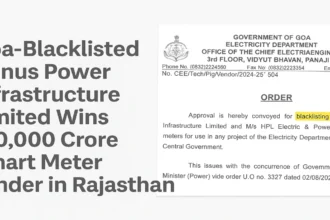As India sets its sights on creating its own ‘Big Four’, ICAI is laying the foundation for a global accounting revolution led by Indian firms, powered by Indian talent.
- Introduction: A Bold Vision for Audit Independence
- Why India Needs Its Own Big Four
- ICAI’s Role: From Regulator to Nation Builder
- A Strong Focus on Technology: Embracing AI & Data Analytics
- Preventing Financial Scams: ICAI’s Proactive Watchdog Role
- Modernizing Accounting Standards: Ind AS 118 & IFRS 19
- Strengthening Ethics: A World-Class Code with Teeth
- Opportunities Beyond Borders: India-UK FTA & MRAs
- Conclusion: A New Era for the CA Profession Begins

Introduction: A Bold Vision for Audit Independence
For decades, India’s financial audit and advisory landscape has been dominated by global firms the well-known “Big Four”: Deloitte, PwC, EY, and KPMG. These multinational giants audit some of India’s biggest corporations, handle sensitive consultancy roles, and often shape corporate governance trends.
But now, India is dreaming bigger. In a strategic pivot, the Indian government backed strongly by the Institute of Chartered Accountants of India (ICAI) is working to create its own version of the “Big Four.” This bold vision is not just about nationalism in finance; it’s about building capacity, ensuring independence, strengthening ethical standards, and expanding India’s global footprint in the financial services sector.
In a recent interview with NDTV Profit, ICAI President Charanjot Singh Nanda detailed how this vision is unfolding and the vital role ICAI is playing in it.
Why India Needs Its Own Big Four
As a CA student and M.Com scholar, I’ve seen firsthand how deeply foreign firms influence our professional space. Many large companies prefer foreign audit brands, not necessarily because of superior quality, but due to perceived reputation and international branding. This has created a gap in how Indian firms are perceived even if they possess equivalent (or better) technical capabilities.
Creating Indian “Big Four” firms aims to:
Break dependency on foreign players
Empower Indian audit firms to scale globally
Retain audit income and data security within the country
Boost India’s reputation as a global services hub
It’s not about replacing the existing firms it’s about levelling the playing field.
ICAI’s Role: From Regulator to Nation Builder
ICAI, established in 1949 by an Act of Parliament, is not merely a professional body. As President Nanda put it, “ICAI will gather resources, facilitate mergers, and revise rules to allow firms to grow.”
Here are the concrete steps ICAI is taking:
1. Facilitating Mergers & Networking
To compete globally, firms must consolidate. ICAI is:
Building a centralized portal to help CA firms identify suitable partners for merger or networking
Encouraging firms to grow in size, aiming for 80–90 partner firms
Supporting multi-city presence to build national footprint
2. Revising Advertising Guidelines
Indian CA firms have historically faced strict restrictions on advertising. This puts them at a disadvantage compared to international firms that invest heavily in branding.
ICAI is revisiting advertising norms to:
Allow limited promotional freedom
Enable firms to communicate their expertise
Improve visibility of Indian audit talent
3. Addressing Financial Bottlenecks
Scaling up requires capital something many mid-sized Indian firms lack.
ICAI is working to:
Explore financial support frameworks
Encourage infrastructure development
Promote investment in audit technologies
These steps will help firms transition from small practices to full-fledged global players.
A Strong Focus on Technology: Embracing AI & Data Analytics
We live in a world where artificial intelligence, blockchain, IoT, and data analytics are transforming financial auditing. ICAI is ahead of the curve.
As President Nanda shared:
On July 1, 2024, we launched a certification course on Artificial Intelligence. Today, over 25,000–30,000 Chartered Accountants have completed it.
This shows ICAI’s commitment to not just preparing its members for the future but shaping the future.
By integrating AI into audit processes:
Routine tasks can be automated
Analytical work becomes sharper
Human error reduces
CAs can focus on strategy, not just compliance
Importantly, AI is seen as an enabler, not a threat.
Preventing Financial Scams: ICAI’s Proactive Watchdog Role
Recent corporate frauds such as those involving IndusInd Bank or Jensenol have exposed the gaps in internal controls and audit vigilance. ICAI has activated its Financial Reporting Review Board (FRRB) to conduct in-depth reviews of such cases.
ICAI is also working on a research paper with SEBI to develop a fraud preemption model, identifying red flags before they turn into full-scale scams.
As future professionals, this makes us proud. It shows ICAI is not just reactive, but preventive and forward-thinking.
Modernizing Accounting Standards: Ind AS 118 & IFRS 19
ICAI is also driving transparency and clarity in financial reporting
Ind AS 118: Presentation & Disclosures in Financial Statements
Focuses on improved communication of financial performance
Classifies expenses into operating, investing, and financing
Enhances management performance disclosures
Applies in India from April 1, 2027
This will help both technical and non-technical investors make informed decisions.
IFRS 19: Uniformity in Subsidiary Reporting
Globally, parent and subsidiary companies often follow different accounting systems. India proposes that if the parent follows IFRS, so must its subsidiaries.
This promotes
Uniform reporting
Easier global investment
Better comparability across jurisdictions
From an M.Com student’s lens, this reform is academically sound and practically beneficial.
Strengthening Ethics: A World-Class Code with Teeth
Ethics is not just theory in the CA profession. It is our license to practice.
ICAI follows the Indian Code of Ethics, which is stricter than the global IESBA code.
ICAI ensures:
Mandatory ethics study by all members annually
Regular training via CPE (Continuing Professional Education)
A robust disciplinary system
As Mr. Nanda confirmed:
Close to 254 Chartered Accountants have been penalized, including financial penalties and removal from the register.
And importantly, ICAI has now started publicizing such actions a move that enhances public trust and reinforces accountability.
Opportunities Beyond Borders: India-UK FTA & MRAs
India’s Free Trade Agreement (FTA) with the UK is a game-changer for the CA profession.
Thanks to relaxed visa rules and mutual recognition:
Indian CAs can practice in the UKBritish accountants can offer services in India
MRAs with ICAEW (UK body) are underway
This marks a shift from brain drain to brain exchange.
As a student, this motivates me. The world is now open to Indian talent and ICAI is building that bridge.
Conclusion: A New Era for the CA Profession Begins
India’s move to build its own “Big Four” firms is not just about corporate branding it’s a deeper signal of economic sovereignty, professional maturity, and global ambition.
ICAI’s leadership in facilitating mergers, embracing tech, reforming ethics, and global integration positions it as not just a regulator, but a visionary institution.
As a CA Intermediate student and M.Com learner, I see a future where Indian audit firms not only match global giants but lead them.
This transformation won’t happen overnight. But with the groundwork being laid now, we the next generation of Chartered Accountants have a once-in-a-lifetime opportunity to be part of India’s audit revolution.

















